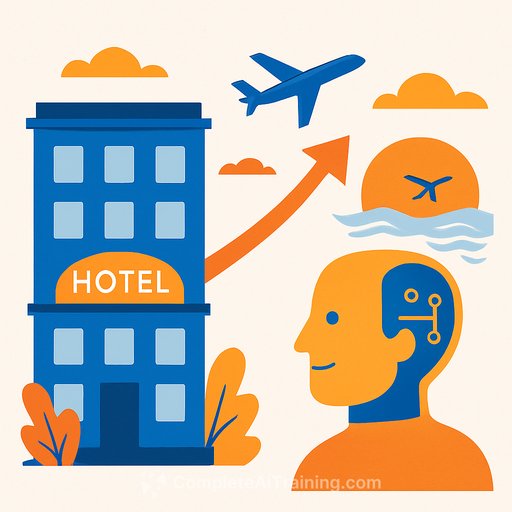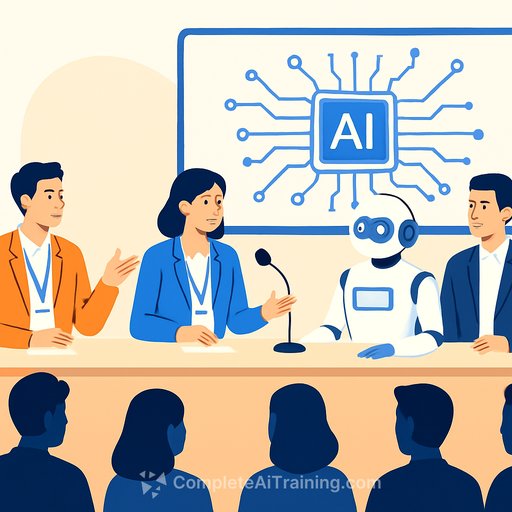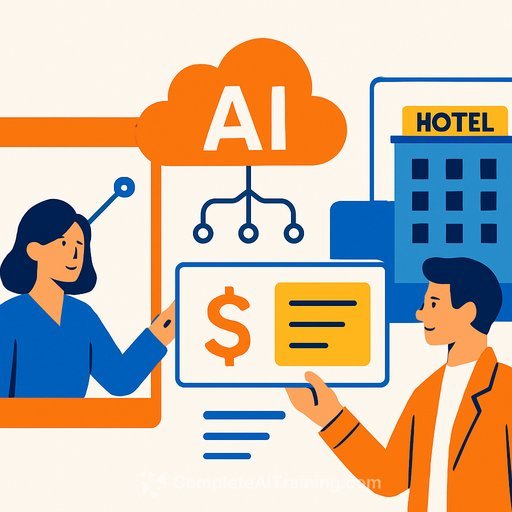Agentic Hotel Distribution: Ride the AI Wave or Wipe Out—the Choice is Yours
The future of hotel distribution is clear: it will be controlled either by Online Travel Agencies (OTAs) or by open protocols. The decisions hotel operators make now—whether part of large global brands, independent inns, or small B&Bs—will determine if their business thrives or disappears.
Recently, AI tools like ChatGPT and Gemini were asked for hotel recommendations in Orlando. The responses came exclusively from OTAs and Google Travel. Why? Because these intermediaries were quick to adopt global real-time availability, rates, and inventory (ARI) feeds that are optimized for AI and guest engagement. They own visibility because they invested in making their data machine-readable from the start.
The hotel industry must adapt to generative AI technology or risk being left behind. AI-native hotel distribution is coming fast. If you're not prepared, there won’t be time to brace for impact—only to face wipe out.
The Promise of Agentic Hotel Distribution
Once the Model Context Protocol (MCP) is fully accessible, every lodging provider will compete directly alongside Expedia and Booking.com. Agentic Hotel Distribution offers travelers more choice, hotels more direct revenue, and the travel industry more control. The focus shifts from scale to structured, machine-readable infrastructure.
Why Infrastructure Matters in Agentic Hotel Distribution
AI is infrastructure, not just a plugin. AI agents can’t "see" hotels unless the data is structured correctly. OTAs invested early to make their ARI feeds machine-readable. That's why AI responses feature OTAs prominently while hotels remain invisible. This isn’t a user interface problem—it’s an infrastructure problem.
Experts like Harman Singh Narula of Canary Technologies have demonstrated how AI can boost hotel revenue through upselling and guest engagement. Now, the next battleground is distribution itself.
Europe is leading the way. The Digital Markets Act (DMA) has forced Google and Booking.com to open access. Lodging schema APIs are evolving, and OTA dominance is waning. The U.S. will follow soon, through regulation or competition.
Doug Rice, in his column “Definitely Doug: The Path to Personalization,” emphasizes that identity and personalization belong to the guest—not the platform. The same applies to distribution: ARI and loyalty data must travel with the guest instead of staying locked inside an OTA.
A Strategic Call to Action
Hotels, suppliers, and providers need to act now. Get MCP-ready by structuring ARI data properly. Publish loyalty logic as portable, machine-readable data. Take control of orchestration instead of delegating it.
Anil Aggarwal, CEO of Milestone, highlighted at HSMAI’s annual conference that the traditional marketing funnel is collapsing into a single, real-time conversation powered by AI. He warned that OTAs threaten hotels by controlling this conversation.
To stay visible, hotels must make their content, loyalty programs, and booking flows machine-readable for AI-driven interactions. Generative AI is consolidating travel planning and booking processes—hotels must invest in technology and strategy to keep direct guest relationships intact.
The Future of Travel Distribution: An Ecosystem Approach
Protocols and infrastructure are being developed to ensure hotels remain visible and competitive. This shift isn’t just about hotels—it’s about building an entire ecosystem for travel distribution.
Throwing a Lifeline at Destination AI
This month, the Destination AI – Hospitality Summit will bring together leaders in AI-powered hospitality to discuss Agentic Hotel Distribution. They will explain why an infrastructure-first approach was developed and how hotels can stay profitable in the AI-native travel era.
Those interested in learning more about the three key principles—MCP Readiness, Portable Loyalty and Identity, and Orchestration Control—should register here. The travel industry is being reshaped by AI. Will you ride the wave or be left behind?
Your membership also unlocks:





